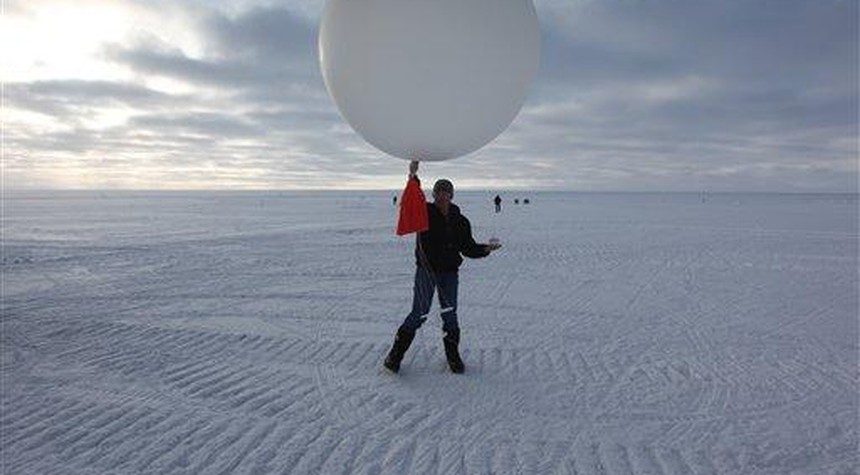The US intelligence community developed a secret technology to track China’s fleet of surveillance balloons only in the last year, according to insiders who spoke with CNN.
Although they won’t say how we’re doing it, the sources claim that the US can now even track past balloon flights—which is why the news only recently came out that the lighter-than-air craft crossed American airspace during the Trump administration. Like a scene out of “Back to the Future,” the Pentagon only recently realized that these intrusions had occurred.
Despite the Biden administration’s insinuation that somehow Trump knew about these flights and did nothing about them, the truth is that our intel community did not know about them at the time, and so could not have informed the former president.
CNN and its sources are not able to describe the new tracking methods, but describe their implications:
After President Joe Biden took office in 2021, a Chinese spy balloon briefly transited the continental United States, as administration officials have acknowledged. Afterwards, the intelligence community ran some of the balloon’s signals through the US’ intelligence holdings and other data to see where and when they may have popped up in the past.
The findings have allowed the US to develop a consistent technical method for the first time that they have used to track the balloons in near-real time across the globe, the sources said. The existence of this method could further inflame criticism from Republican lawmakers that the administration didn’t act quickly enough to prevent the balloon from entering US airspace last week. [Emphasis mine.]
This is an aside to the main story, but why is it that outlets like CNN always report that such news will inflame Republican lawmakers? Shouldn’t it inflame everybody that Biden allowed our number one geopolitical and economic foe to fly a surveillance aircraft over our sovereign territory for over a week? But I digress.
The new methods indicate that Chinese balloons crossed US airspace at least three times during Trump’s tenure. As I’ve previously written, balloons are cute at birthday parties, and can be effective information gatherers about the weather—but military balloons could also be used to drop munitions, conduct high-level surveillance, and even launch drone armies and EMP attacks. They’re no joke.
You’d think they wouldn’t be that hard to track—but they’re flying at heights well above the altitude of commercial aircraft. According to CNN:
…the new method is important because the balloons are extremely difficult to track without it – they are slow-moving and can fly extremely high, in some cases as high as much as 60 miles up [this is incorrect, the National Weather Service indicates the highest we can go is 20 miles], and can evade the more traditional radars that are oriented toward detecting fast-moving missiles and counterterrorism threats…
Of course, CNN also said they got this info from “six people familiar with the matter,” which seems oddly specific for a super-secret ability we just discovered this week that allows us to go back in time to criticize Donald Trump. Given that the intelligence community, media, and even Democrat leadership (but I repeat myself) are really invested in destroying the 45th president, I’d take this particular leak with a big grain of salt.
China has developed an entire fleet of these military balloons—which have been seen in other countries besides the United States—and hopefully, the autopsy of the one the US recently shot down will help us understand just what the heck the CCP is up to.
None of this excuses Biden for his failure to take out the balloon much sooner than he did, but it could explain why Trump and members of his administration basically said, “what the hell are you talking about?” when news broke that flights had occurred under his command.
That is if CNN got the story right.
Update: Although the CNN story says balloons can go as high as 60 miles, the National Weather Service says we can only go as high as 20. I have noted that in the article.
See also:–>

